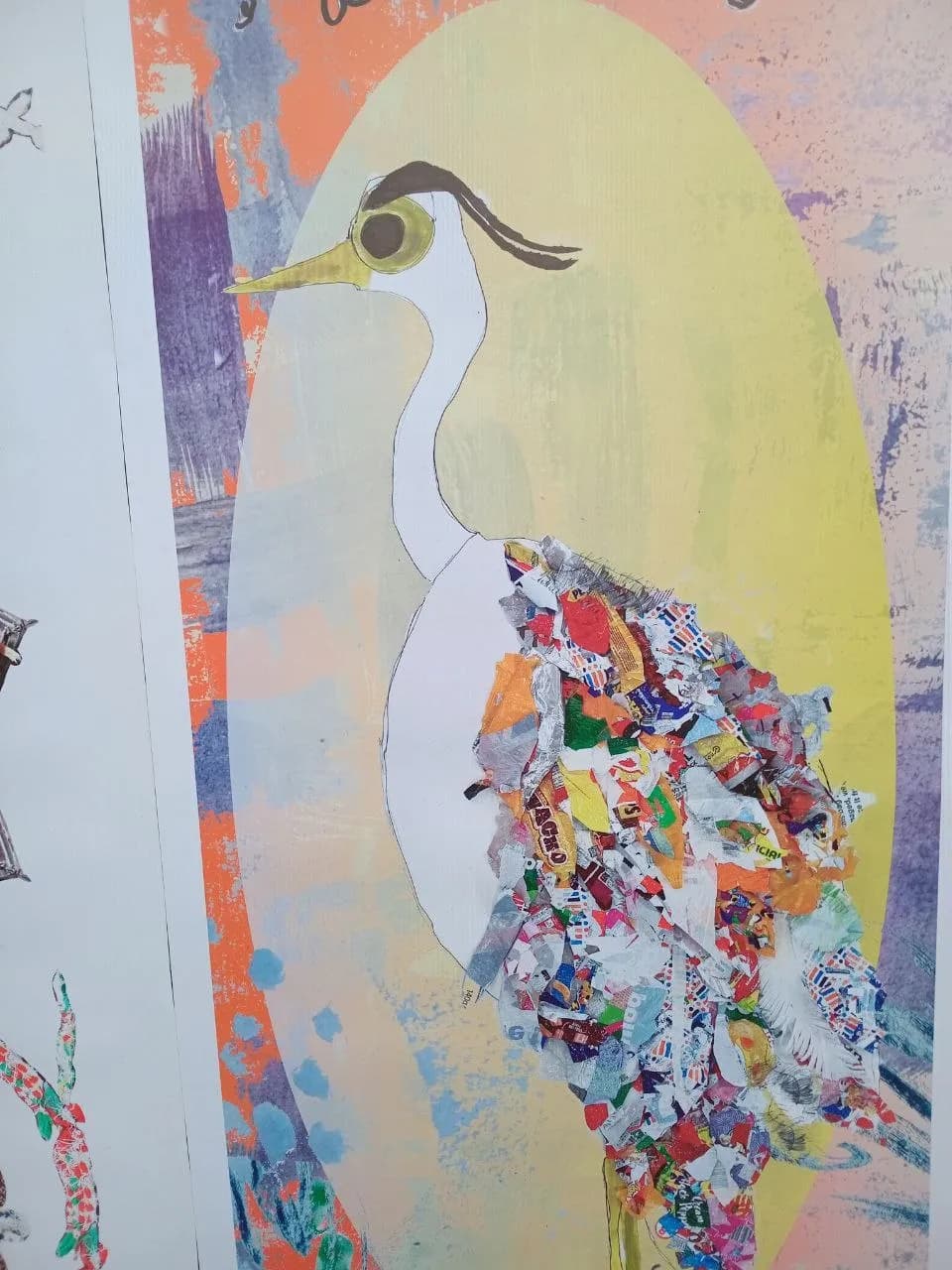Progress for 0 ad
Progress for 1 ad
Progress for 2 ad
Progress for 3 ad


Daniel Metaferiya
Addis Ababa, Ethiopia

Art is meeting climate change awareness in a project under the British Embassy as Ethiopian youth create kaleidoscopic artworks with discarded plastic. The River of Hope Project has brought together students from 30 primary schools in Addis Ababa and Arba Minch for the creative endeavor. Last week, the project hosted its closing ceremony at the British Council, with students proudly showcasing their artworks in a vibrant celebration.
The Council’s compounds are kept tidy using the recycled plastic brooms made by the students. Nearly every item at the ceremony, from the cups to the decorations, is made of recycled material. Combining creative arts and environmental learning is central to the project’s objective of nurturing climate change awareness.
Ruth Bogale, the Program director, hopes to see the students become equipped with skills that will serve them throughout their lives. She believes a long-lasting climate consciousness will be nurtured when the awareness is brought about through art.
“We experimented with different methods to keep them engaged,” Ruth told Shega
The project provides training to primary school teachers on methods of instruction, which continues with support on developing the artworks. While this iteration of the project dealt with students, Ruth has engaged with various segments of society on climate-conscious creations.
She recalled training given to inmates at an Arba Minch correction facility as one of her highlights in the two-year project. The inmates are reportedly taking lessons and finding an alternative revenue source for life after incarceration.
The project benefits teachers by giving them access to online resources for the inclusion of climate change topics into their curriculum.
One teacher from the Southern city said a group of students crowded at her doorstep after seeing some of the artwork.
“They showed up in front of my house with bags full of plastic bottles,” she told Shega.
Ethiopia’s per capita plastic consumption has increased by 400% in the fourteen years since 2007 to reach 2.6 Kg. This has positioned Ethiopia as the second largest importer of plastic in East and Central Africa. Compounded by extreme weather events, food insecurity, and water scarcity, the impacts of climate change have become pronounced in Ethiopia.
The River of Hope project is being implemented in Leeds, Newham (London), Tees Valley, Norfolk, and Plymouth, and in France (Rouen) and Ethiopia (Addis Ababa & Arba Minch). Its implementation in Ethiopia is being assisted by the Totally Thames Trust.
The artworks produced under the project will be exhibited as flag installations in festivals in addition to being featured in an online gallery.
👏
😂
❤️
😲
😠

Daniel Metaferiya
Daniel Metaferiya is a writer, journalist and radio host, with a keen interest in technology. He follows developments in Ethiopia's startup ecosystem closely and is passionate about profiling unique MSMEs.
Your Email Address Will Not Be Published. Required Fields Are Marked *